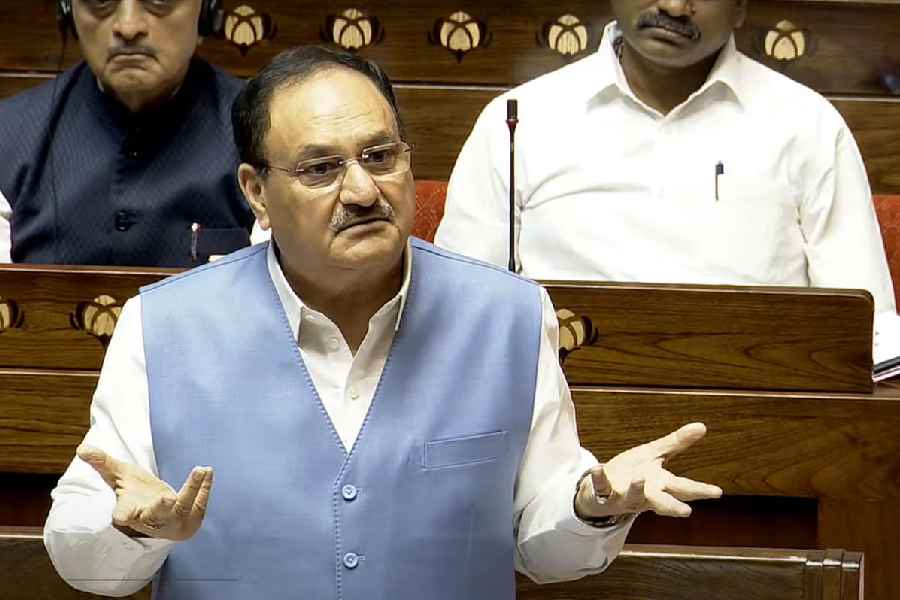The WHO's recent report stating that half of India's adult population is physically unfit relied on data collected only from three states and one UT, and the results were extrapolated through a modelling technique indicating inbuilt methodological issues, Union Health Minister J P Nadda told the Lok Sabha on Friday.
Responding to a question, Nadda said the WHO defines 'sufficient physical activity' as 150 minutes of moderate intensity physical activities per week (brisk walk, lifting light load etc.) or 75 minutes of vigorous intensity activity per week (running, digging, construction work, outdoor games etc.).
The activity level so quantified is based on a self-reported response to questions about physical activity lasting at least for 10 minutes.
The National NCD Monitoring Survey of Indian Council of Medical Research (ICMR) 2020 has assessed, inter alia, physical activity amongst Indian adults and found that 58.7 per cent had conformed to the WHO recommendations, Nadda told the Lok Sabha.
He informed that the ICMR in another study entitled 'Physical activity and inactivity patterns in India' results from the ICMR-INDIAB Study (phase 1) conducted in 2014 has found that 54.4 per cent of the sampled adult population were insufficiently physically active.
The study findings were based on the data collected from three states -- Tamil Nadu, Maharashtra and Jharkhand -- and Union Territory of Chandigarh.
Based on this ICMR-INDIAB Study (Phase 1) data, the WHO in collaboration with Lancet published an article entitled "National, regional and global trends in insufficient physical activity among adults from 2000 to 2022: a pooled analysis of 507 population based surveys with 5.7 million participants" and reported enhanced prevalence of insufficient physical activity among Indians between 2000 (22.3 pc) and 2022 (49.4 pc).
"The WHO relied on the data collected only from 3 states and one UT and extrapolated results through a modelling technique indicating inbuilt methodological issues. The projections to 2030 are also based on extrapolations and modelling," Nadda said.
The WHO in its Global Status Report on Physical Activity 2022 studied the prevalence of insufficient physical activity among adults aged over 18.
Inactivity among adults is high in many high-income countries, including the USA (33.7 pc), Canada (37.2 pc) and Japan (44.7 pc). The Government of India focuses on health promotion and awareness generation through countrywide movements like 'Fit India Movement' where people are encouraged to remain healthy and fit.
Many activities for healthy living, including physical activities are also promoted through the National Programme for Prevention and Control of Non-Communicable Diseases (NP-NCD), Nadda said.
Except for the headline, this story has not been edited by The Telegraph Online staff and has been published from a syndicated feed.










